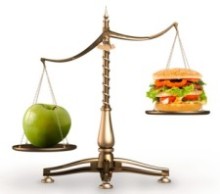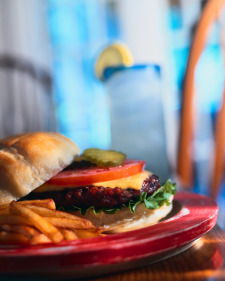What Happens to your "Good Intentions"?
 Tuesday, August 16, 2011 at 8:20AM
Tuesday, August 16, 2011 at 8:20AM  The most recent data on calorie intake shows that Americans’ average calorie intake has increased by 571-calories per day between 1977 and 2006.[1] Over this same period obesity increased dramatically from 15% to 34% of American adults. Why exactly are we seeing this dramatic rise in obesity now, after thousands of years of leaner humans being the norm? It’s not because of changes in our genetics, or physiological changes in appetite regulation (which would mean we’re genetically mutating at some fantastic rate). The popular topic of hormones (leptin, ghrelin, etc.) and “hypothalamic regulation of feeding” suffer from the same underlying problem (have these systems changed in 30 years?) and ignore the fact that nowadays humans simply choose to eat—without consideration of whether they are hungry or not.
The most recent data on calorie intake shows that Americans’ average calorie intake has increased by 571-calories per day between 1977 and 2006.[1] Over this same period obesity increased dramatically from 15% to 34% of American adults. Why exactly are we seeing this dramatic rise in obesity now, after thousands of years of leaner humans being the norm? It’s not because of changes in our genetics, or physiological changes in appetite regulation (which would mean we’re genetically mutating at some fantastic rate). The popular topic of hormones (leptin, ghrelin, etc.) and “hypothalamic regulation of feeding” suffer from the same underlying problem (have these systems changed in 30 years?) and ignore the fact that nowadays humans simply choose to eat—without consideration of whether they are hungry or not.





